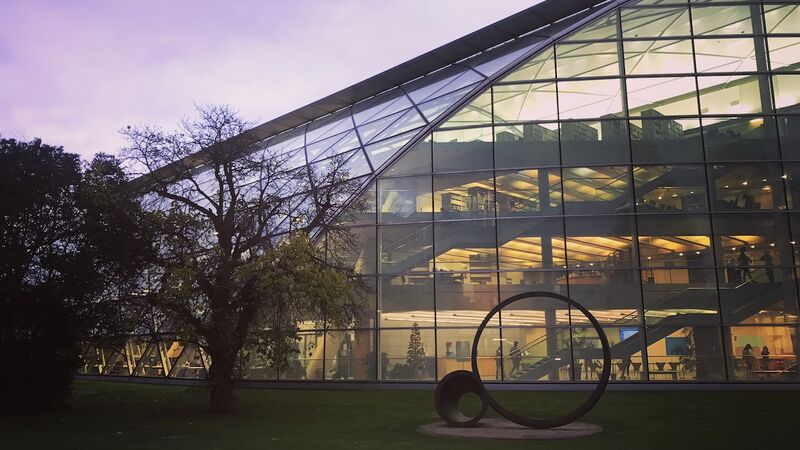Frequently Asked Questions

The CPP typically partners with organisations, including NGOs, charities, courts or barristers’ chambers, in order to produce a research report addressing a topic of interest to the project partner.
The life of a CPP research report usually begins with a short project proposal from a prospective project partner. Proposals are usually submitted each year, before the start of the academic year (September / October). Projects are usually selected on the basis of having a strong public interest dimension, and whether the topic is suitable to the available expertise within the Faculty.
Occasionally, the CPP accepts proposals, or solicits projects, outside of this cycle. In past years, where there has been a pressing need for pro bono research, the CPP has undertaken projects during the summer break.
The CPP is a research centre, not a legal clinic. It works on a model which draws on the subject-matter expertise of graduate doctoral researchers, masters students and Faculty experts.
Under this model, the CPP does not advise individuals of their rights – but tends to produce reports targeted towards law reform, policy, or which assist the partner organization with their ongoing legal activities, or a current legal controversy. Projects are usually selected on the basis of having a strong public interest dimension.
Because the CPP can, each year, draw on the depth of knowledge that exists across the Faculty of Law, it is flexible in the range of matters it can research. Typical projects will relate to issues of public international law, criminal law, or domestic British public law. However, projects have been undertaken in the past which have drawn on expertise from the Cambridge Institute of Criminology, or have involved a comparative public law dimension. You can read about our past projects.
The CPP will consult closely with its project partner to determine the appropriate format for its research. Sometimes, the research will be presented in the form of a short dossier, appropriate for a lay audience. Other times, it might be presented as formal legal submissions. Often, a CPP research report is given as a legal memorandum. Length and style may vary, depending on need.
About six months.
The usual timeline of a CPP project is as follows:
- Receipt of project proposal in September / October.
- Recruitmemt of a research team in October, and engagment with the client over October / November.
- Over the course of the Christmas break, Lent term and into Easter term, CPP researchers will finalise their report.
- Most reports are finalised by May.
A CPP research team is supervised by a senior Faculty member. A member of the Executive Committee, usually a PhD researcher, will also supervise the project.
The day-to-day running of the research is undertaken by 2-3 project managers (also graduate students), who supervise a larger team of researchers drawn from the Faculty’s membership.
This structure allows the CPP to leverage expertise from the Faculty, and to undertake a breadth of research in a relatively short period of time.
We welcome project submissions from individuals and organisations undertaking public interest work in a pro bono capacity. For more information about our projects, and how to submit a project proposal, see our projects page.
No, the CPP cannot provide legal advice.
The CPP does not advise individuals on their rights directly, neither can we represent persons in legal disputes.
The CPP's research reports are produced for informational purposes only. They do not constitute any form of legal advice and should not be relied on, or treated as a substitute for legal advice tailored to specific circumstances.
As a student, if you would like to get involved as a researcher or project manager, the CPP usually recruits in October-November every year. You will receive emails about joining the CPP at the start of the academic year, and information about the CPP will be provided during law PhD and LLM inductions.
Outside of those times, please contact the Executive Committee at cpp@law.cam.ac.uk. You can also follow the CPP on Twitter or LinkedIn.
If you are interested in the CPP’s work, please also come along to our speaker series. Each term, the CPP hosts a range of legal practitioners, academics and activists, who speak on a range of topics related to public interest law. Many of the CPP events are recorded and are available on the Event recordings page.
No, the CPP only recruits current members of the University of Cambridge.
Each term, the CPP hosts a range of legal practitioners, academics and activists, who speak on a range of topics related to public interest law. Recordings of the CPP talks can be found here. The talks are an excellent opportunity to learn about what is happening, now, at the forefront of public interest practice, and also a good opportunity to network. Keep an eye out on our Twitter and LinkedIn accounts, and our events page, for details.
In more normal times, the CPP will also usually hold an annual dinner. The March 2020 annual dinner was preceded by a talk from Professor Philippe Sands QC.
The CPP has a Twitter feed and a LinkedIn page. The accounts are managed by members of the Executive Committee, who are guided by the CPP’s Social Media Policy,
